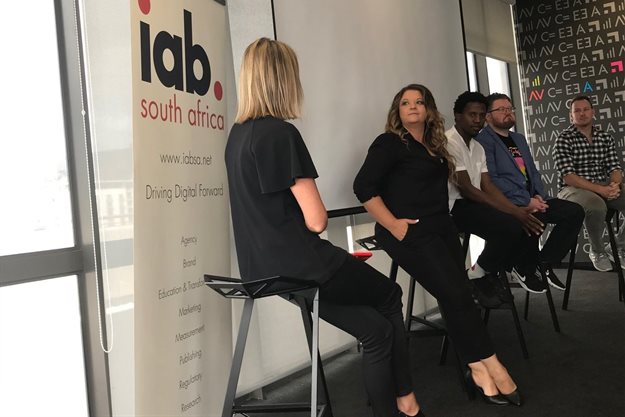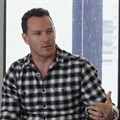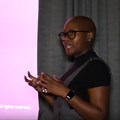#IABInsightSeries: Trends transforming the digital economy (CPT)

The Cape Town event was held at Kantar on the Foreshore on Thursday, 13 February, and was sponsored by Incubeta, in partnership with Kantar, DSTV Media Sales, GetSmarter, a 2U, Inc. brand and Bizcommunity.
The series was created to provide insights across four pillars, namely the future of work, digital or interactive marketing, benchmarking digital excellence and digital within the full attribution model, with the first quarter focusing on the future of work and the objective being to equip attendees to make better digital decisions.
Here, Masango, CD at King James Group and Wilke, head of Programmatic at 24.com delve into some of these trends and tell us what to watch out for in 2020...
The digital economy is changing at such a rapid rate. What are some of the trends transforming the digital economy at the moment?
Masango: The digital economy is changing at the speed of culture. The same way there’s a new dance craze or hit song every month, there’s a new platform. But much like mediums such as TV and radio, only 5% of content is brilliant. As content creators, we need to figure out how to be in the top 5% no matter what the new trend is.
Wilke: It’s really difficult to try and pinpoint one thing, however, I do believe that the biggest transformation is education catching up with digital. Schools offering coding, for example, that is future-planning that makes sense. I also firmly believe the barriers of exclusion are disintegrating – the influx of people, ideas and problems that were before not needing solutions for the people driving the narrative has meant breakthroughs in things through digital that previously weren’t even needed to be considered.
Why do you believe being aware of and embracing these trends is important for business?
Masango: It’s simple. If you don’t exist where your audience is, you don’t exist at all. Brands need to respond quicker or they won’t survive. However, embracing new trends doesn’t mean sacrificing classic mediums. The fact that iPhone still uses billboards and TV to promote a digital device is testament to that.
Wilke: If business wants to have the best digitally-savvy employees in 5, 10, 15 years – then worrying less about children learning their Pythagorean theorems and more about children that can think algorithmically and with real-world applications will secure humans and business learning what we don’t even don’t know we don’t know right now.
Let’s speak specifically to interactive marketing. What are the biggest trends in this space at the moment?
Masango: Creating value without immediately driving a sale. Podcasts are a smart way of doing that. For instance, The Goop Podcast provides content that women enjoy, over time they develop an affinity with the Goop brand and ultimately buy Goop products.
Wilke: Interactive would speak to VR and/or AR if I think about it quickly, however, I still believe that once Connected TV and DOOH is matured, especially in SA, there are incredible things that brands can try. Interactive for me is not a brand attempting to “have a conversation” with its target market by the way. I think that’s a trend at the moment, but it doesn’t make sense for any and all brands, and negative sentiment towards a brand “trying too hard” could be worse than pushing for interaction. Sometimes, it’s probably better to just be seen and not heard. Remain that loyal, trusted brand and don’t have an opinion.
How should businesses respond / change the way they approach interactive marketing?
Masango: We often preach the gospel of consistency. But when it comes to social media, brands should be true to the platform that they’re on. Instead of behaving the same way on Twitter as you do on Instagram, you can tailor your tone to the specific platform.
Wilke: I think I spoke to that a bit above, however, as I mentioned, interactive doesn’t always mean “be in the conversation”. Consumers want an experience, so let them experience brands as solid and trusted.
And then in terms of future trends, what do you foresee happening in the digital economy/industry in 2020? What to watch out for in 2020.
Masango: For the first time, we have a generation of adults who have only lived in the digital era. For them, “traditional media” is digital. So, I think there’ll be less emphasis on traditional vs digital. We’ll keep seeing new platforms and innovations to play with but from a marketing point of view, we’re going to return to the basics of creativity: creating content that’s inspired by interesting human truths.
Wilke: Speaking about the focus on privacy and new laws, governing it feels almost cliché, but it is happening and it’s making massive changes to the way strategies are conceived and executed. I foresee more opportunities in upskilling and training being available. An online certificate course-like structure in AdOps, campaign management, etc., would be game-changing beyond the existing routes like Google Ad Academy and so on. We haven’t even touched on the Internet of Things, but South Africa being so globally unique in the mobile space really leads me to believe that when iOt matures, South African’s will take to it well. 2020 is going to be a little stagnant, with a return to content is king and SEO experiencing a bit of a resurgence, especially with new cookie laws and difficulty in targeting could become more and more a reality. Relevant content for contextual targeting will become a need for those used to executing programmatic through DSPs.
For more insights, here's our coverage of the Johannesburg session:
The Series has temporarily been postponed.
Standard tickets to attend these IAB Insight events cost R500. Free for IAB members. Email ten.asbai@aluaP for sponsorship opportunities and keep an eye on the IAB SA website or visit Facebook and Twitter for further updates! You can also subscribe to the IAB Insight Series' emailers and don’t miss the IAB YouTube Insight Series.



















































